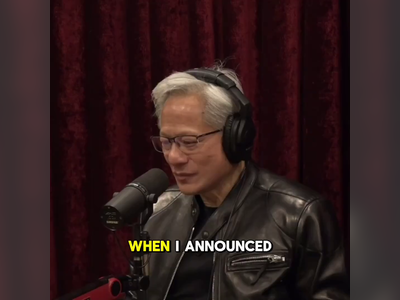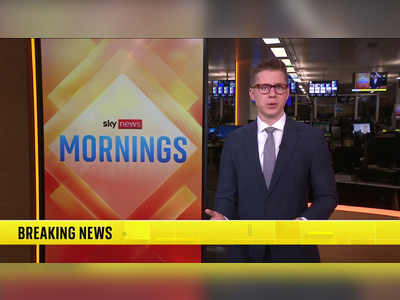
Erdogan Might Be Too Sick to Keep Leading Turkey
Evidence is growing that Turkey’s president is ailing—and that could be bad news for the country’s politics.
Since 2019, Turkey experts, journalists, and pollsters have been eyeing the Turkish general election scheduled for 2023. This is probably because the ruling Justice and Development Party (AKP) suffered humiliating defeats of its mayoral candidates in Turkey’s major population centers, including Istanbul, in the 2019 local elections. Regular polling since those elections reveal that the AKP’s popularity is soft, even as it maintains a grip on Turkey’s political institutions and the media. Anecdotally, it seems that President Recep Tayyip Erdogan has worn out his welcome, especially among young people.
Erdogan may indeed be vulnerable ahead of 2023—just not necessarily in the way most people think. There are signs he may be too ill to run for reelection at all.
In recent months, a series of videos have surfaced in which the Turkish leader has not looked well. Some of them are not as clear as others, but, taken together, they raise some obvious questions about Erdogan’s health. In one clip, for example, the president appears to need the assistance of his wife and an aid as he negotiates a set of stairs. In another, he seems to shuffle and have some difficulty walking at Anitkabir, the mausoleum of Turkey’s founder Mustafa Kemal Ataturk. And, in a video that received considerable attention this past July, Erdogan seems to fade out and slur his words during a televised holiday greeting to AKP members.
At times, he has looked quite gaunt. In tandem with this footage are rumors about the president’s health—including stories alleging he has been dealing with increasing forgetfulness, bouts of breathing problems, confusion, vomiting, and the implantation of an internal defibrillator. According to these same accounts, the president has increased the number of doctors around him, reduced encounters with the press, and is being pumped up with painkillers before public events.
Of course, these rumors are most often repeated by people outside of Turkey or more than a few steps removed from the president’s inner circle, so the allegations of Erdogan’s coming demise might just be idle chatter. After all, in other videos, he has seemed perfectly fine. When he appeared on Face the Nation on Sept. 26, he looked perhaps not as vigorous as he once was, but he is 67—not old, but not young—and has been in power for more than 18 years, which has to take a toll.
It is never a good idea to make medical judgments from afar, especially if one is not a physician. But let’s suspend judgement for a moment and play out a thought experiment: What if Erdogan is quite ill? What happens if either by illness or death he cannot stand for reelection in 2023?
According to Article 106 of the Turkish Constitution, Vice President Fuat Oktay would assume the responsibilities and powers that Erdogan now possesses until an election can be held (in 45 days) and a new president is sworn in. That is pretty straightforward and standard. Turkey analysts have long assumed that in a post-Erdogan Turkey, the AKP would split off in ways that would open a pathway to a competitive election that could be won by any one of Turkey’s major opposition politicians. Perhaps it could be Ekrem Imamoglu, who defeated a former AKP prime minister (twice) to become mayor of Istanbul. His counterpart in Ankara, Mansur Yavas, is a formidable politician. And then there is Meral Aksener, leader of the Good Party, with a reputation for being tough as nails.
There are reasonable scenarios in which Imamoglu, Yavas, or Aksener becomes Turkey’s next president, but the assumption underlying any of their victories is the return to so-called normal politics after Erdogan. It is possible, but there are grounds for skepticism. First, it should be clear by now that Erdogan, through the AKP, has either hollowed out or bent Turkey’s political institutions to his will. In this context, it is hard to imagine that an election organized in 45 days could be free and fair. Second, and of more consequence, is the fact that during Erdogan’s two-decade-long tenure, people within the AKP’s inner circle have grown wealthy and powerful, often through questionable means and practices. It seems unlikely that officials, businesspeople, media personalities, and others would so readily risk their gains by submitting themselves to the uncertainty of more democratic politics.
Under these circumstances, it is worth considering the possibility that another strongman could rule a post-Erdogan Turkey, perhaps under a state of emergency. Among the more powerful figures in Turkey, besides Erdogan, are intelligence chief Hakan Fidan, Minister of National Defense Hulusi Akar, and Interior Minister Suleyman Soylu. Of the three, Akar seems best positioned to assume leadership. Fidan is well known to Turks, but he operates mostly behind the closed doors of the National Intelligence Organization. Soylu is damaged goods after a Turkish mafia don named Sedat Peker suggested that the interior minister was corrupt and in bed with organized crime in a series of YouTube videos posted in recent months.
Akar also has an advantage over Fidan or Soylu that neither of them could match: the armed forces. Analysts have tended to discount the role of the military in Turkish politics since reforms in 2003 and 2004 brought the armed forces under civilian control. The failed coup of 2016—during which large numbers of Turks, regardless of their politics, rejected a return to the military tutelage system, combined with subsequent purges of the officer corps—seemed to have broken the will of commanders to play a role in politics. Yet Akar, the chief of staff during the attempted putsch and later a minister of national defense, has played the central role in reshaping the armed forces after July 2016 that may place the military in a position to play a political role again… in support of Akar.
In the five years since, the minister has been responsible for appointing somewhere in the neighborhood of 65 percent of the officer corps, including hundreds of generals and an even higher percentage of noncommissioned officers. In the days when the Turkish military fashioned itself above politics but nevertheless retained a duty to intervene to protect the Kemalist system, this might not have mattered so much. Had the military been subordinated to civilians through rules, regulations, and decrees as the AKP began doing early on in its rule, Akar’s influence within the ranks may not have been an issue. Yet it seems that while the officers are subordinate to civilians, this is not through political institutions but rather through loyalty. They owe their rank and influence to two civilians—Akar and Erdogan. If the president is incapacitated or dies, that leaves Akar in a very powerful position.
Some in Washington may look at the minister of national defense and say, “OK, he doesn’t seem so bad. He strikes us as pragmatic. We can do business with him.” That is not an unreasonable position, but no one should expect Akar to be friendly to the United States. He comes from a similar place, ideologically, as Erdogan. The minister has also made common cause with a fiercely nationalist, anti-Western group of officers. Among other things, they have colluded to punish officers who cut their teeth in NATO commands and who spent significant time in Europe and/or the United States—either by putting them in jail (for alleged links to the controversial cleric Fethullah Gulen) or by keeping them out of positions of responsibility. Akar was also the official directly responsible for Turkey’s aggressive posture in the Mediterranean during the summer of 2020 that pitted Ankara against its own NATO allies Greece and France. It would be hard for the defense minister to approximate Erdogan’s political skill and charisma, but with the loyalty of the bulk of the officer corps, he would not need to—at least initially.
There is, of course, no way of knowing the actual state of Erdogan’s health or who might succeed him, but analysts and government officials do themselves no service by assuming that Erdogan will make it to the 2023 elections. If he does not, Turkish politics may snap back to something resembling the status quo ante, or the fissures in the AKP may present opportunities for the opposition, or the country may become more unstable, or something else may happen. For years, the foreign-policy community imagined that Egypt would pass from Hosni Mubarak to either his son Gamal Mubarak or his head of intelligence, Omar Suleiman. It turned out to be neither. It would be an even bigger mistake to ignore the signs that the Turkish president may be deteriorating and hope against hope that things will work out.
Erdogan may indeed be vulnerable ahead of 2023—just not necessarily in the way most people think. There are signs he may be too ill to run for reelection at all.
In recent months, a series of videos have surfaced in which the Turkish leader has not looked well. Some of them are not as clear as others, but, taken together, they raise some obvious questions about Erdogan’s health. In one clip, for example, the president appears to need the assistance of his wife and an aid as he negotiates a set of stairs. In another, he seems to shuffle and have some difficulty walking at Anitkabir, the mausoleum of Turkey’s founder Mustafa Kemal Ataturk. And, in a video that received considerable attention this past July, Erdogan seems to fade out and slur his words during a televised holiday greeting to AKP members.
At times, he has looked quite gaunt. In tandem with this footage are rumors about the president’s health—including stories alleging he has been dealing with increasing forgetfulness, bouts of breathing problems, confusion, vomiting, and the implantation of an internal defibrillator. According to these same accounts, the president has increased the number of doctors around him, reduced encounters with the press, and is being pumped up with painkillers before public events.
Of course, these rumors are most often repeated by people outside of Turkey or more than a few steps removed from the president’s inner circle, so the allegations of Erdogan’s coming demise might just be idle chatter. After all, in other videos, he has seemed perfectly fine. When he appeared on Face the Nation on Sept. 26, he looked perhaps not as vigorous as he once was, but he is 67—not old, but not young—and has been in power for more than 18 years, which has to take a toll.
It is never a good idea to make medical judgments from afar, especially if one is not a physician. But let’s suspend judgement for a moment and play out a thought experiment: What if Erdogan is quite ill? What happens if either by illness or death he cannot stand for reelection in 2023?
According to Article 106 of the Turkish Constitution, Vice President Fuat Oktay would assume the responsibilities and powers that Erdogan now possesses until an election can be held (in 45 days) and a new president is sworn in. That is pretty straightforward and standard. Turkey analysts have long assumed that in a post-Erdogan Turkey, the AKP would split off in ways that would open a pathway to a competitive election that could be won by any one of Turkey’s major opposition politicians. Perhaps it could be Ekrem Imamoglu, who defeated a former AKP prime minister (twice) to become mayor of Istanbul. His counterpart in Ankara, Mansur Yavas, is a formidable politician. And then there is Meral Aksener, leader of the Good Party, with a reputation for being tough as nails.
There are reasonable scenarios in which Imamoglu, Yavas, or Aksener becomes Turkey’s next president, but the assumption underlying any of their victories is the return to so-called normal politics after Erdogan. It is possible, but there are grounds for skepticism. First, it should be clear by now that Erdogan, through the AKP, has either hollowed out or bent Turkey’s political institutions to his will. In this context, it is hard to imagine that an election organized in 45 days could be free and fair. Second, and of more consequence, is the fact that during Erdogan’s two-decade-long tenure, people within the AKP’s inner circle have grown wealthy and powerful, often through questionable means and practices. It seems unlikely that officials, businesspeople, media personalities, and others would so readily risk their gains by submitting themselves to the uncertainty of more democratic politics.
Under these circumstances, it is worth considering the possibility that another strongman could rule a post-Erdogan Turkey, perhaps under a state of emergency. Among the more powerful figures in Turkey, besides Erdogan, are intelligence chief Hakan Fidan, Minister of National Defense Hulusi Akar, and Interior Minister Suleyman Soylu. Of the three, Akar seems best positioned to assume leadership. Fidan is well known to Turks, but he operates mostly behind the closed doors of the National Intelligence Organization. Soylu is damaged goods after a Turkish mafia don named Sedat Peker suggested that the interior minister was corrupt and in bed with organized crime in a series of YouTube videos posted in recent months.
Akar also has an advantage over Fidan or Soylu that neither of them could match: the armed forces. Analysts have tended to discount the role of the military in Turkish politics since reforms in 2003 and 2004 brought the armed forces under civilian control. The failed coup of 2016—during which large numbers of Turks, regardless of their politics, rejected a return to the military tutelage system, combined with subsequent purges of the officer corps—seemed to have broken the will of commanders to play a role in politics. Yet Akar, the chief of staff during the attempted putsch and later a minister of national defense, has played the central role in reshaping the armed forces after July 2016 that may place the military in a position to play a political role again… in support of Akar.
In the five years since, the minister has been responsible for appointing somewhere in the neighborhood of 65 percent of the officer corps, including hundreds of generals and an even higher percentage of noncommissioned officers. In the days when the Turkish military fashioned itself above politics but nevertheless retained a duty to intervene to protect the Kemalist system, this might not have mattered so much. Had the military been subordinated to civilians through rules, regulations, and decrees as the AKP began doing early on in its rule, Akar’s influence within the ranks may not have been an issue. Yet it seems that while the officers are subordinate to civilians, this is not through political institutions but rather through loyalty. They owe their rank and influence to two civilians—Akar and Erdogan. If the president is incapacitated or dies, that leaves Akar in a very powerful position.
Some in Washington may look at the minister of national defense and say, “OK, he doesn’t seem so bad. He strikes us as pragmatic. We can do business with him.” That is not an unreasonable position, but no one should expect Akar to be friendly to the United States. He comes from a similar place, ideologically, as Erdogan. The minister has also made common cause with a fiercely nationalist, anti-Western group of officers. Among other things, they have colluded to punish officers who cut their teeth in NATO commands and who spent significant time in Europe and/or the United States—either by putting them in jail (for alleged links to the controversial cleric Fethullah Gulen) or by keeping them out of positions of responsibility. Akar was also the official directly responsible for Turkey’s aggressive posture in the Mediterranean during the summer of 2020 that pitted Ankara against its own NATO allies Greece and France. It would be hard for the defense minister to approximate Erdogan’s political skill and charisma, but with the loyalty of the bulk of the officer corps, he would not need to—at least initially.
There is, of course, no way of knowing the actual state of Erdogan’s health or who might succeed him, but analysts and government officials do themselves no service by assuming that Erdogan will make it to the 2023 elections. If he does not, Turkish politics may snap back to something resembling the status quo ante, or the fissures in the AKP may present opportunities for the opposition, or the country may become more unstable, or something else may happen. For years, the foreign-policy community imagined that Egypt would pass from Hosni Mubarak to either his son Gamal Mubarak or his head of intelligence, Omar Suleiman. It turned out to be neither. It would be an even bigger mistake to ignore the signs that the Turkish president may be deteriorating and hope against hope that things will work out.



